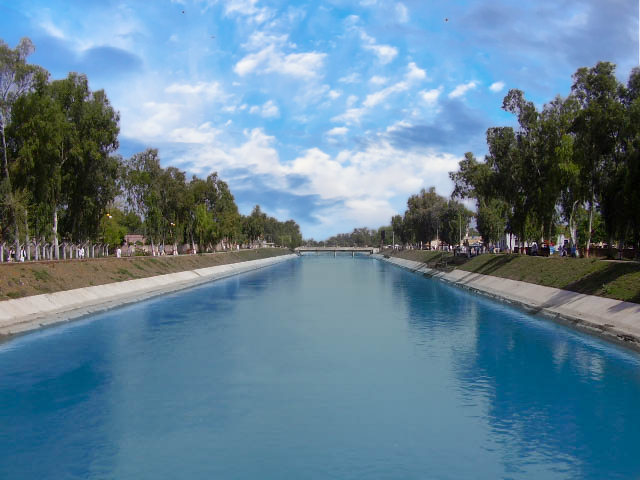Bhakkar on:
[Wikipedia]
[Google]
[Amazon]
Bhakkar () is the principal city of
/ref> It came under
Bhakkar District
Bhakkar District (), is a district in the province of Punjab, Pakistan. The district was created out of parts of Mianwali in 1982, and has the city of Bhakkar as its headquarters. Part of its area consists of a riverine tract along the Indu ...
, Punjab
Punjab (; ; also romanised as Panjāb or Panj-Āb) is a geopolitical, cultural, and historical region in South Asia. It is located in the northwestern part of the Indian subcontinent, comprising areas of modern-day eastern Pakistan and no ...
, Pakistan
Pakistan, officially the Islamic Republic of Pakistan, is a country in South Asia. It is the List of countries and dependencies by population, fifth-most populous country, with a population of over 241.5 million, having the Islam by country# ...
. It lies on the left bank of the Indus River
The Indus ( ) is a transboundary river of Asia and a trans-Himalayas, Himalayan river of South Asia, South and Central Asia. The river rises in mountain springs northeast of Mount Kailash in the Western Tibet region of China, flows northw ...
. It is the 86th most populous city in Pakistan.
Administration
Bhakkar is the administrative centre of Bhakkar Tehsil, which is one of the fourtehsil
A tehsil (, also known as tahsil, taluk, or taluka () is a local unit of administrative division in India and Pakistan. It is a subdistrict of the area within a Zila (country subdivision), district including the designated populated place that ser ...
s of the district. Bhakkar Tehsil is subdivided into 17 union councils, three of which form the city of Bhakkar.
History
Bhakkar was founded probably in late 15th century by a group of colonists fromDera Ismail Khan
Dera Ismail Khan (; Urdu and , ), abbreviated as D.I. Khan, is a city and capital of Dera Ismail Khan District, located in Khyber Pakhtunkhwa, Pakistan. It is the 10th largest city of Pakistan and third or fourth largest in the province of Khy ...
, and is named after Bakhar Khan.Bhakkar Town – Imperial Gazetteer of India, v. 8, p. 44./ref> It came under
Humayun
Nasir al-Din Muhammad (6 March 1508 – 27 January 1556), commonly known by his regnal name Humayun (), was the second Mughal emperor, who ruled over territory in what is now Eastern Afghanistan, Bangladesh, Northern India, and Pakistan from ...
's rule after he restored the Mughal Empire
The Mughal Empire was an Early modern period, early modern empire in South Asia. At its peak, the empire stretched from the outer fringes of the Indus River Basin in the west, northern Afghanistan in the northwest, and Kashmir in the north, to ...
in 1555 and appointed Khan Khanan as the governor of the city alongside Multan, as Multan was a province of the Mughal empire that included the city of Bhakkar.
Fray Sebastian Manrique, a 17th-century Portuguese traveller, visited the city in 1641 and described it as the capital of Kingdom of Bhakkar.
British rule
During British rule, Bhakkar town was part of Bhakkar Tehsil inMianwali District
The Mianwali District () is a Districts of Pakistan, district located in the Sargodha Division of the Punjab, Pakistan, Punjab province of Pakistan. Mianwali District remained part of Rawalpindi Division until 1963, when Mianwali District beca ...
. It was located on the left bank of the Indus River
The Indus ( ) is a transboundary river of Asia and a trans-Himalayas, Himalayan river of South Asia, South and Central Asia. The river rises in mountain springs northeast of Mount Kailash in the Western Tibet region of China, flows northw ...
, and the North-Western Railway line passed through it.
The Imperial Gazetteer of India
''The Imperial Gazetteer of India'' was a gazetteer of the British Indian Empire, and is now a historical reference work. It was first published in 1881. Sir William Wilson Hunter made the original plans of the book, starting in 1869.< ...
described the town as follows:
Demographics
Population
According to 2023 census, Bhakkar had a population of 131,658.Notable places
Dilkusha Bagh
Dilkusha Bagh is an old date orchard in Bhakkar. It is believed to be aMughal garden
A Mughal garden is a type of garden built by the Mughal Empire, Mughals. This style was influenced by the Persian gardens particularly the Charbagh structure, which is intended to create a representation of an earthly utopia in which humans c ...
built by Humayun or Akbar
Akbar (Jalal-ud-din Muhammad Akbar, – ), popularly known as Akbar the Great, was the third Mughal emperor, who reigned from 1556 to 1605. Akbar succeeded his father, Humayun, under a regent, Bairam Khan, who helped the young emperor expa ...
. It is home to hundreds of rare date cultivars, along with its common Basra dates.
Karna oil
Bhakkar is known for production of Karna oil from Karna flowers. The flowers are used in a multitude of ways, but the most common use is to make oil. Its essence is extracted and added to mustard oil while cloves, cardamom, jasmine and other spices are also added to the mixture. The resulting product is called ‘karna oil’ and is thought to be a quality product for treating a wide array of hair-related issues such as dandruff and hair loss.References
Bibliography
* * *External links
* {{Official website, https://www.malikhassanzayn.tk/ Populated places in Bhakkar District Cities in Punjab (Pakistan) Bhakkar District